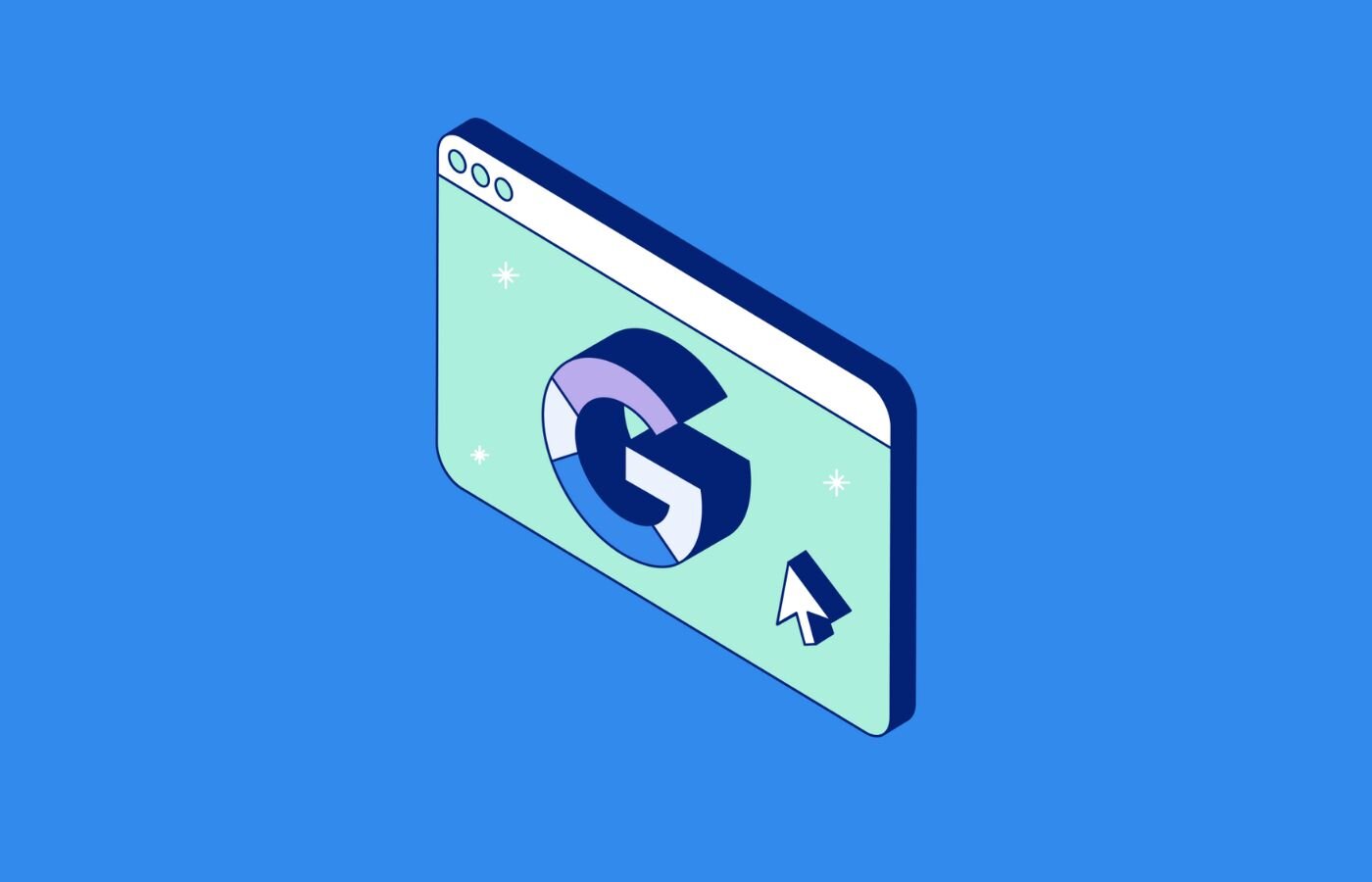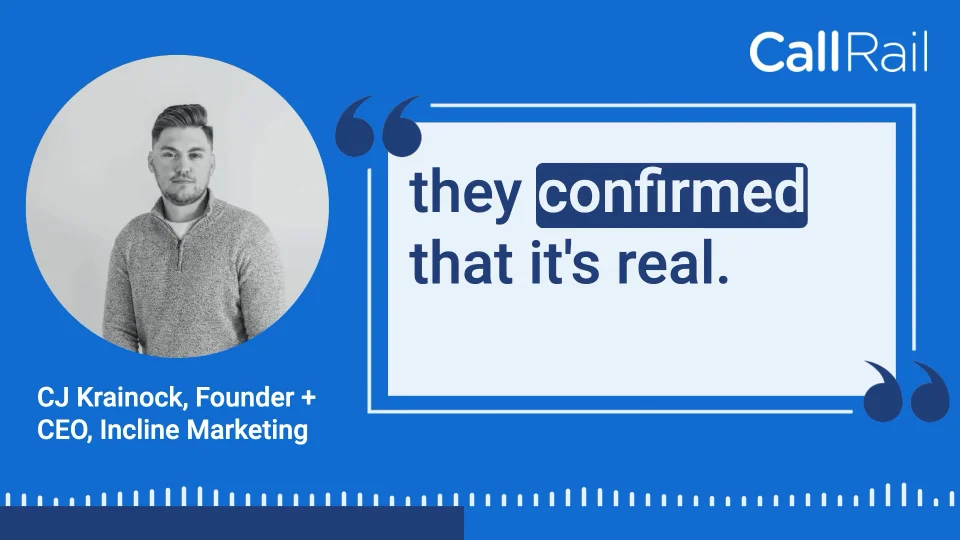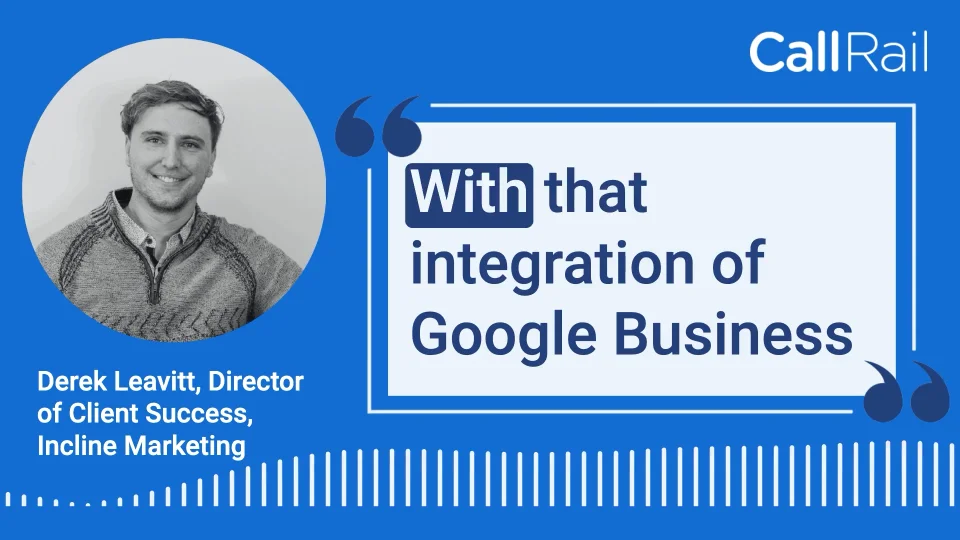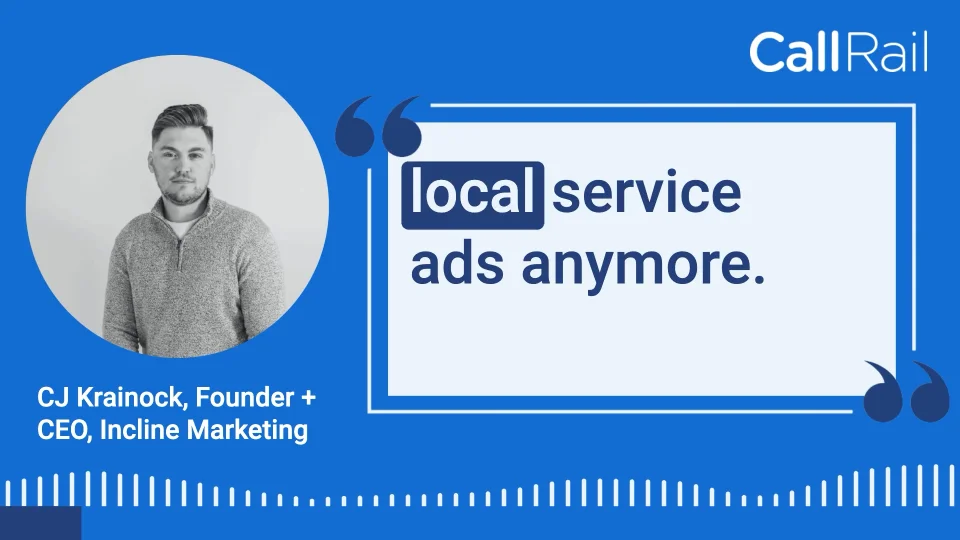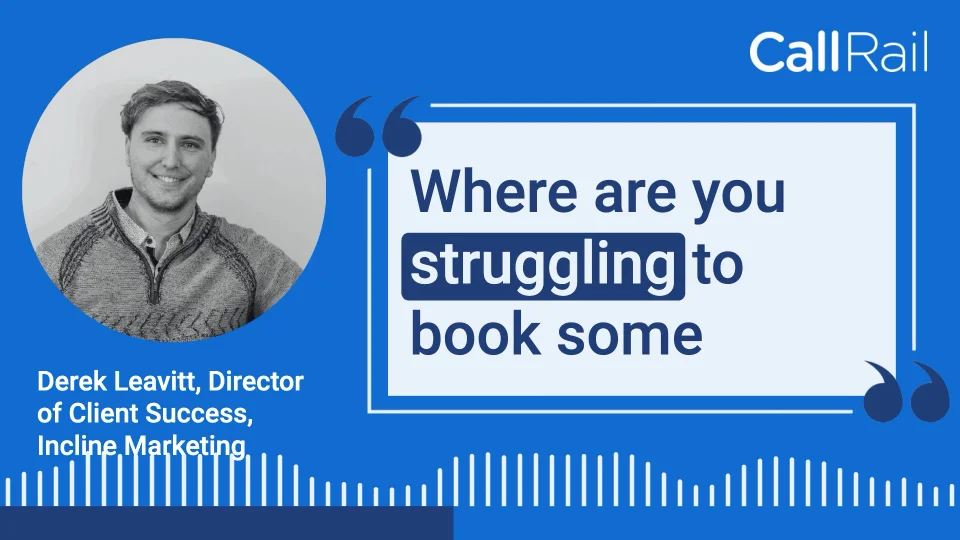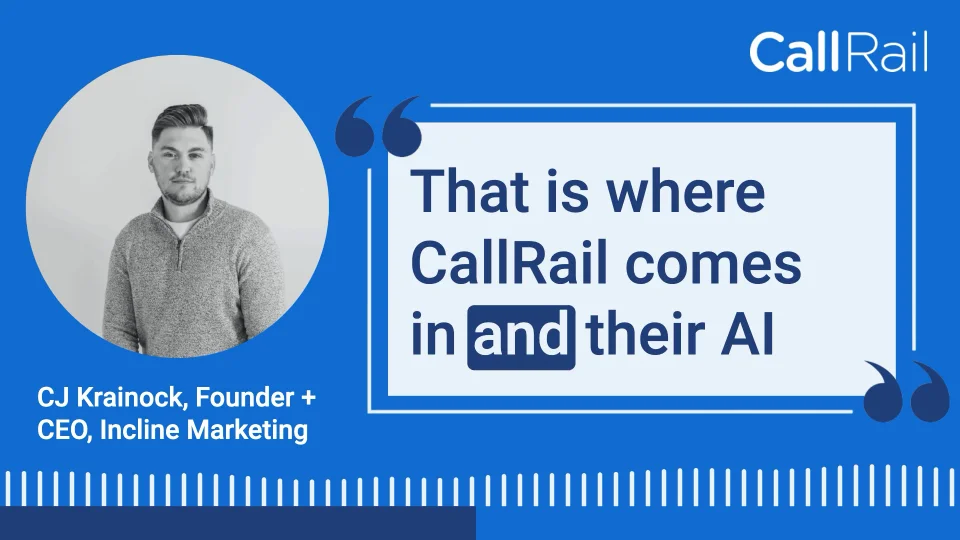Google has rolled out several significant updates to its Local Services Ads (LSAs) that aim to improve efficiency and automation for businesses. These changes are powered by artificial intelligence (AI) and are reshaping how companies manage and optimize their LSAs.
CallRail’s Bailey Beckham sat down with CJ Krainock and Derek Leavitt from Incline Marketing to break down the key updates and their implications.
Google's recent modifications
AI-Driven dispute resolution
One of the most impactful updates is the introduction of AI-driven dispute resolution. In the past, businesses manually filed disputes if they felt they were charged for invalid leads. Now, AI automates the lead credit process, simplifying the way disputes are handled. However, this comes with some limitations:
- Automated lead credits: If a lead is deemed invalid by the system, Google automatically credits the business account. While this speeds up the resolution process, it also means businesses have less control over decision-making.
- Limited dispute options: Automation also leads to fewer options for businesses to challenge decisions that may not fit the predefined criteria. If your lead falls outside of what the AI recognizes as an error, it can be difficult to appeal or modify the decision.
- Reliance on lead rating system for AI improvements: Google’s system relies heavily on businesses accurately rating their leads. This helps improve the AI over time, but it also means businesses need to be diligent in categorizing leads correctly to ensure the system is learning from accurate data.
Integration with Google Business Profiles
Another important change is the deeper integration between LSAs and Google Business Profiles (GBP). This integration ensures your business information is consistent across the board, which is key for both LSA performance and customer trust.
- Requires verified and accurate GBP: To maximize the impact of your LSAs, your Google Business Profile must be verified and up-to-date. Without this, your ads may not show up as frequently or be prioritized over others with verified profiles.
- Streamlines review management process: The integration also simplifies review management, allowing businesses to easily track and respond to customer reviews directly from the Google interface. A verified GBP helps improve your overall visibility and authority in the LSA system, as well as contributing to more positive customer interactions.
What are the challenges?
Businesses face several challenges when navigating Google’s Local Services Ads ecosystem. While these features bring advanced capabilities, they also introduce new complexities and hurdles that can impact campaign performance.
Increased competition and higher costs
As Google expands LSAs, more businesses compete for visibility, driving up the cost per lead and making it harder for smaller businesses to compete. The bidding system can also become expensive as demand increases, leading to higher campaign costs.
Limited dispute resolution options
The AI-driven dispute resolution system limits businesses' ability to challenge incorrect charges outside Google's automated guidelines. This inflexibility can frustrate businesses with legitimate concerns or edge cases that don’t fit AI logic.
Lead quality and relevance
Despite automation, businesses still face challenges with the quality and relevance of leads from LSAs. As Google's algorithm evolves, leads may not always align with services, requiring manual targeting adjustments. Ensuring high-quality leads that meet business goals is crucial for maximizing ROI.
Targeting capabilities
Google's targeting features for LSAs are powerful, but businesses must use them strategically. Incorrect setup can lead to many non-converting or irrelevant leads. Businesses should regularly monitor and adjust targeting to reach the right audience.
Complexity in managing LSAs and Your Google Business Profile
Managing LSAs and Google Business Profiles together can be tricky, especially when syncing them. Businesses must keep their GBP optimized and monitor LSA performance, disputes, and lead ratings. Without the right tools or experience, this growing complexity can be overwhelming.
Overcoming the challenges
To succeed using local services ads, businesses must dig into their data to understand where calls are coming from, helping optimize targeting and budget allocation. LSAs aren’t a "set it and forget it" solution—regularly monitoring campaign performance is key to spotting trends and making necessary adjustments.
How CallRail can help
Tools like CallRail can automate the process of tracking and managing calls, saving time and improving accuracy by eliminating the need to manually listen to and qualify hundreds of calls. This helps businesses gain valuable insights into lead quality and campaign effectiveness, ensuring sustained success.
Here are some features that make it easy to track the data that’s influencing your leads.
- Call routing: Automatically route calls to the right team member or department, ensuring a quicker response time and higher chances of conversion.
- Call recording: Record and store calls to review later, providing valuable insights into customer interactions and areas for improvement.
- Automated transcriptions: Automatically transcribe calls, allowing you to quickly review conversations without needing to listen to entire recordings. This is particularly useful for identifying trends, qualifying leads, and training staff.
- Conversation keyword spotting: The AI-powered keyword spotting feature identifies important keywords during conversations, helping you understand which terms resonate with potential customers. This can help refine your messaging and improve targeting.
- Call sentiment analysis: CallRail’s sentiment analysis feature evaluates the tone and emotion of calls, providing insights into customer satisfaction. This can help you assess lead quality and identify areas for improvement in your sales process.
- Self-reported attribution capabilities: Allow callers to report how they found your business, providing valuable data on which marketing efforts are most effective. This feature helps you optimize your ad spend by understanding what drives the best leads.
To conclude
Google's updates to Local Services Ads are transforming how businesses manage and optimize their advertising strategies. To fully leverage these recent changes and optimize your advertising efforts, CallRail is the key.
Start a 14-day free trial today—no credit card required—and see how CallRail can enhance your marketing strategy.



